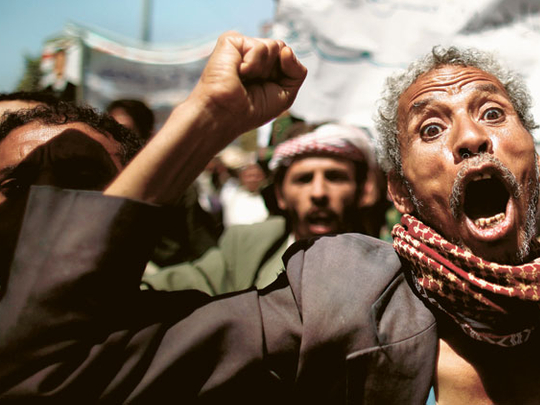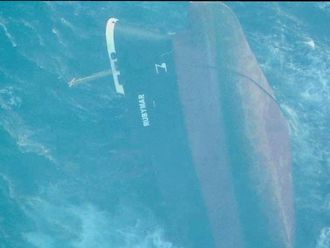
Sana'a US military trainers on the ground in Yemen are poised to restart a programme to help the new president tackle emboldened Al Qaida militants, but intensifying security cooperation between the two sides has a key drawback: upsetting the delicate political balance of power in the country and complicating the sensitive task of overhauling the nation's fractured security forces.
Yemeni and US officials said dozens of US special-operations forces are working to resume training of counter-terrorism forces after a lull last year, a revelation that comes in the wake of the jihadi attack on a US convoy in the country as well as a string of sophisticated and bloody attacks by the Yemeni branch of Al Qaida that have killed nearly 200 soldiers and sparked a crisis for Yemen's new government.
While President Abdu Radu Mansour Hadi has openly turned to Washington as he attempts to get the upper hand over the terrorist group that both San'a and Washington see as one of the greatest threats to their homelands, his policy has angered both the militants and his political opponents.
One of the key promises the president made when he succeeded deposed leader Ali Abdullah Saleh last year was to overhaul and rebuild the nation's security forces to further transfer power from former President Saleh's relatives and political allies.
That promise runs smack up against the reality that Saleh's oldest son and two nephews still command the counter-terrorism and intelligence units responsible for the fight against Al Qaida, despite their father's ouster.
Washington considers Al Qaida in the Arabian Peninsula (AQAP), the Yemeni affiliate, one of the greatest threats to the US homeland. The US official said AQAP retains the ambitions and capability to attack the West and to gain ground locally.
Unlike in other Mideast countries, the US and the international community brokered the power-transfer agreement last year that gave him immunity from acts committed during his 33 years in power and anointed a transitional coalition government populated with the nation's political elite.
The diplomatic effort was largely due to worry about AQAP solidifying its foothold in the country should political chaos continue.
Since taking over, President Hadi and the government have repeatedly reiterated a strong commitment to fighting Al Qaida and enhancing US counter-terrorism operations, earning plaudits from top US officials, including Deputy National Security Adviser John Brennan, who tailored American counter-terrorism policy in the past closely around Saleh and his family members and worried that cooperation might tail off without him in power.












